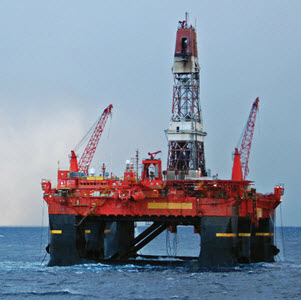Contact
2013 Energy Security Workshop
Asia’s Uncertain LNG Future
The National Bureau of Asian Research (NBR) hosted its ninth annual Energy Security Workshop, “Asia’s Uncertain LNG Future,” on June 21, 2013, in Washington, D.C.
Asia hopes that liquefied natural gas (LNG) will become a key component of its future energy security strategies as the region seeks to meet its energy and environmental goals. However, there is enormous uncertainty about the extent to which Asia can rely on LNG to meet its future needs. Australian supplies are being threatened by huge cost pressures; U.S. and Canadian supplies are facing domestic policy constraints; and Gulf supplies are subject to geopolitical uncertainty. The demand picture is also deeply uncertain: China is trying to determine the role of LNG in its energy policy, while examining related questions about its potential shale gas supplies; Japan’s energy future remains unclear as policy debates continue about the use of nuclear power; and South Korea is seeking potential gas supplies from Russian pipelines, which may decrease its need for LNG. The future of Asia’s high-price, oil-linked LNG contracting structure is also under pressure.
How the United States and Asia address these challenges will determine the future of LNG as a critical dimension of Asia’s energy security and will have significant geopolitical implications.
With these concerns in mind, the 2013 Energy Security Workshop examined:
- Why Asia’s gas demand has been rising so dramatically, and why LNG pricing and supply security have become a greater challenge
- LNG demand dynamics in the Asia-Pacific, and how Asia’s major consumers are responding to and shaping both market and policy challenges
- Asia’s major supply uncertainties and geopolitical risks, including questions about U.S. and Australian exports and how domestic politics are shaping Russian energy policies
- The impact of the shale gas revolution in North America on the future of U.S. strategic commitments in the Middle East and the implications for Asia’s energy security
- Strategies for enhancing U.S. energy security and strategic engagement in the Asia-Pacific
Speakers
Michael Bradshaw, University of Leicester
Mikkal Herberg, The National Bureau of Asian Research; University of California–San Diego
Peter Hughes, Peter Hughes Energy Advisory Limited
Amy Jaffe , University of California–Davis
James Jensen, Jensen Associates
Anthony Jude, Asian Development Bank
Damien Ma, The Paulson Institute
Jane Nakano, Center for Strategic and International Studies
Tony Nash, IHS Consulting Asia
James Slutz, Global Energy Strategies
Nikos Tsafos, PFC Energy
Anthony Yuen, Citigroup
Agenda and Speaker Bios
Sponsors
Asian Development Bank
Chevron
ConocoPhillips
ExxonMobil




